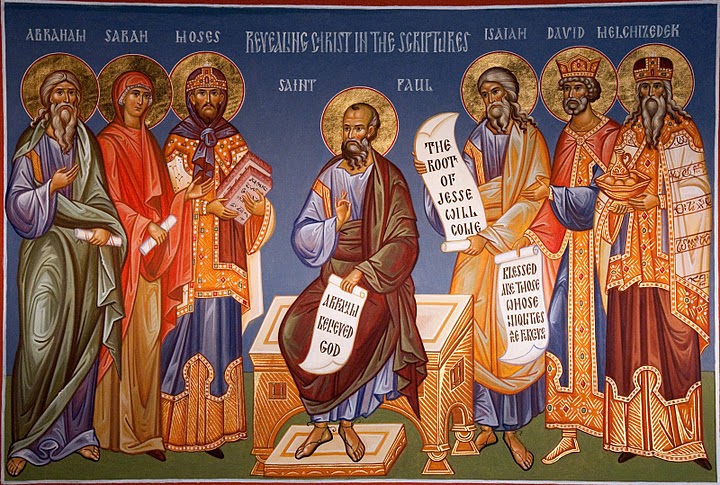Abraham, a pivotal figure in the annals of monotheistic traditions, is revered as a progenitor who not only fostered faith in a singular deity but also fathered a lineage of prophets whose teachings continue to resonate profoundly in contemporary spirituality. Among these are the prophets of the Baha’i Faith, who articulate a coherent narrative of divine revelation that spans millennia. The challenge that arises is, how can one reconcile the diverse teachings of these biblical prophets while acknowledging their interconnectedness in the pursuit of a unified understanding of God? This article delves into the significance of the prophets descending from Abraham and their teachings within the framework of Baha’i beliefs.
The Legacy of Abraham
Abraham’s significance is not merely as a historical figure, but as the epitome of faith and obedience to God. His covenant with God established him as the father of many nations, thus heralding a plethora of prophetic figures, each contributing a unique facet to the divine revelation. In the context of the Baha’i Faith, these prophets are collectively seen as essential messengers who pave the way for the ultimate revelation of Baha’u’llah.
1. The Prophets of the Abrahamic Lineage
The line of prophets stemming from Abraham includes figures such as Moses, Jesus, Muhammad, and of course, Baha’u’llah himself. Each prophet embodies distinct attributes and teachings that address the spiritual and social exigencies of their respective epochs.
– **Moses**: Revered for delivering the Law to the Israelites, he embodies the principles of justice and moral responsibility. His teachings emphasize the importance of community and ethical conduct, foundational to Baha’i principles of unity and justice.
– **Jesus Christ**: A figure of unparalleled compassion and love, Jesus brought forth the ideals of forgiveness and service. His teachings resonate with Baha’i emphasis on the intrinsic worth of every human being and the necessity of working toward global harmony.
– **Muhammad**: The final prophet in the Islamic tradition, Muhammad’s revelations expanded upon previous teachings, introducing concepts of social equity and community welfare. In Baha’i thought, these themes are integral to creating a just society, aligned with the principles of consultation and collective progress.
– **Baha’u’llah**: The founder of the Baha’i Faith, Baha’u’llah synthesized the teachings of past prophets while providing a contemporary framework for addressing modern challenges. His writings advocate for universal peace, equity, and the oneness of humanity, diverging from sectarian divisions stemming from interpretations of earlier revelations.
2. Understanding Progression in Revelation
A fundamental tenet of Baha’i belief is the concept of progressive revelation. This principle posits that God’s message is revealed incrementally through successive prophets, catering to the evolving needs of humanity. Each prophet serves as a link in a continuous chain of divine guidance that builds upon and refines the teachings of their predecessors.
The progression from Abraham’s covenant through the teachings of Moses, Jesus, and Muhammad culminates in Baha’u’llah’s revelations. This seamless transmission of knowledge engenders a profound understanding of faith as an evolving process rather than a stagnant set of beliefs. The challenge for adherents lies in embracing this dynamic evolution while respecting the foundational doctrines established by earlier prophets.
3. Navigating Doctrinal Diversity
One must consider the doctrinal diversity inherent within the teachings of these prophets. While their core messages often converge on themes such as love, justice, and community, the contextual application differs. For instance, the Mosaic Law is focused significantly on societal governance, while the teachings of Jesus may better resonate with personal spirituality and compassion. Muhammad’s revelations reflect principles of community cohesion and expansion of rights, particularly for marginalized groups.
Within the Baha’i Faith, this diversity is viewed not as a fragmentation but as a richness that enhances the understanding of God’s will. The interdependence of these teachings allows followers to appreciate different perspectives while acknowledging a central truth — the oneness of God and humanity.
4. The Role of Universal Principles
An essential aspect of integrating the teachings of these prophetic figures lies in discernment of universal principles. Each prophet’s message, although contextual, underscores values that transcend time and place. In the Baha’i framework, unity and justice emerge as themes that resonate from the teachings of every member of this illustrious lineage.
This universality poses a playful question: Can one find commonality in seemingly disparate teachings? The Baha’i view encourages adherents to seek the essence of each teaching, fostering mutual respect and understanding across different faith traditions.
5. The Contemporary Relevance of Abrahamic Prophets
In a global context fraught with division and discord, the teachings of the prophets descending from Abraham hold critical relevance. They offer insights into creating an inclusive society where diversity is celebrated rather than vilified. The Baha’i Faith asserts that understanding these teachings can inform contemporary ethical frameworks, thereby guiding humanity toward a more harmonious existence.
Thus, the teachings of these prophets are not entrenched in the past but are dynamic and applicable to current societal challenges, from social justice to environmental stewardship. The dialogue among faiths, inspired by shared prophetic legacies, is essential for fortifying the foundations of an equitable global community.
Conclusion
In conclusion, the prophets descended from Abraham serve as pivotal figures whose teachings offer a robust framework for understanding divine will. Embracing the concept of progressive revelation enriches the spiritual landscape, harmonizing diverse doctrines under the umbrella of universal truths. As seekers journey through the teachings of these prophets, they are prompted to reflect on their implications for fostering unity and peace, ensuring that the legacy of Abraham continues to inspire generations.
